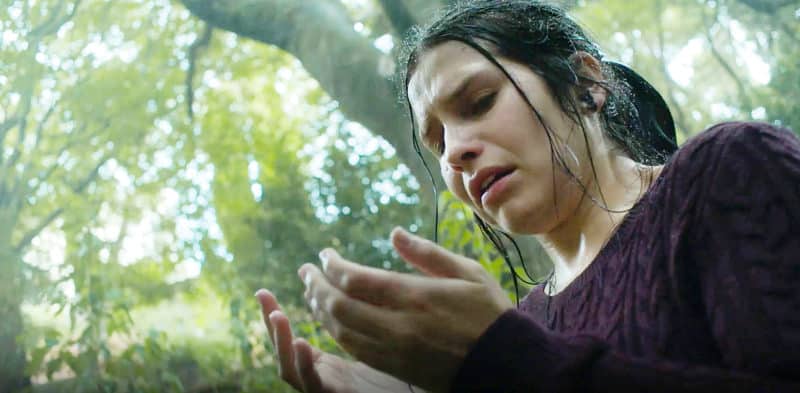A series of real-life terrors has given the year’s output of horror films a fresh sense of relevance.
While Covid-19 pandemic is still claiming lives it has yet to make a big screen presence. That is partly due to the sustained damage to the cinema industry, among others, of the lockdowns.
Cinemas are still no-go zones in many countries and their plight is exacerbated by Hollywood refusing to release the kind of movies that attract big audiences.
New Zealand is thankfully free of restrictions to most forms of entertainment. It has been a boon to the distributors of niche movies, though box office takings are well down.
One is the horror genre, whose intention is to shock rather than provide solace in times of stress.
These have been provided by conventional scare tactics such as psychological thrillers, alien invaders and haunted houses. Few movies have engaged in the Covid world of social distancing, Zoom calls, working from home, self-isolation, quarantine and mask wars. But no doubt they will come.
In the meantime, horror fans have had to rely on a diet of psychic and physical threats.
Among the best was The Invisible Man, a combination stalker-home invasion thriller that delivered one of the year’s rare jump-out-of-your-seats moments.
Color Out of Space added some psychedelic visuals to one of H. P. Lovecraft’s stories of alien invasion. Lovecraft’s name was also exploited for one of HBO’s more sensational offerings for lockdown viewers at home.
Relic from Australia was sophisticated treatment of the ghosty house, with the added drama of three-generational family conflict. Haunted houses popped up regularly on Netflix, too, including the latest version of Rebecca (reviewed in the November 15 issue).
This brings us to the locally produced Reunion (387 Distribution), which contains some of the above — a rambling mansion haunted by its past, a mother-daughter conflict and some psychedelic trickery — with much more besides.
A rough tally includes expectant mother anxiety (Rosemary’s Baby), dubious medical experiments, black magic imagery, sleepwalking, sibling rivalry, “found footage” flashbacks and varying levels of madness.
Not since Housebound (2014) has a Kiwi horror movie come close to resembling its overseas counterparts. Writer-director Jake Mahaffy’s background is in American documentaries and experimental dramas. He has de
liberately obscured the location and one vehicle, a Ford pickup, is clearly a left-hand drive.
However, the cast of mainly New Zealanders is typically restrained in a plot that takes time to warm up. A pregnant daughter (Emma Draper) returns after a long absence to her old home where her over-bearing mother (Julia Ormond) is packing up to leave and not that keen to see her.
The reasons are soon apparent. The dementia-afflicted father (John Bach) remains largely in the background as the family’s secrets are unpacked.
Most of these are about his sordid experiments, while the daughter is obsessed with her paranormal studies.
Reunion takes time to settle down but every scene is layered with meaning, even if it is not apparent at the time.
Rating: Mature audiences. 95 minutes.
CLIPS
The Man on the Island (Rialto Distribution)
One-time arts student and pinup photographer Colin McLaren first visited Hauraki Gulf’s Rakino island in 1972 when it was largely a hippie hangout. That era has passed but McLaren kept returning, buying a property in 1980, planting it in olives, and finally moving there in 1991. Authorities would prefer Rakino was not inhabited permanently and only about 20 people do so today, though it has a regular ferry service. Shops and glasshouses are forbidden, there is no power or water supply, and most provisions have to be bought in Auckland. For McLaren, who has tried many projects to earn some income, growing your own food includes bananas. He now gets super and runs a taxi as well as the local newspaper. All of which makes him a fascinating story-teller for documentary-maker Simon Mark-Brown ( A Seat at the Table ). Rating: Restricted to audiences over 16. 78 minutes.
Made in Italy (Madman)
 Irish tough guy Liam Neeson (whose latest thriller, The Honest Thief , is also in cinemas) has a hard job fitting into a bad-dadcomes-good role as he and his real-life son (Micheál Richardson) bring their neglected Tuscany villa up to a saleable condition. Both have failed to overcome the death of their wife and mother 20 years earlier. English actor James D’Arcy ( Dunkirk ), in his writing and directing debut, partly bases the story on both his own and the Neesons’ experiences, as his mother died when he was young. Neeson’s wife, Natasha Richardson, died in a skiing accident in 2009 while Micheál was still a boy. Now a fading artist, Neeson is at first reluctant to sell, while the estranged son needs the money for an art gallery. The renovation proceeds apace and brings a predictable resolution to their relationship. Two romantic subplots are thrown in, featuring Valeria Bilello and Lindsay Duncan, but the real star is the Tuscany landscape (Montalcino to be exact).Rating: Mature audiences. 94 minutes.
Irish tough guy Liam Neeson (whose latest thriller, The Honest Thief , is also in cinemas) has a hard job fitting into a bad-dadcomes-good role as he and his real-life son (Micheál Richardson) bring their neglected Tuscany villa up to a saleable condition. Both have failed to overcome the death of their wife and mother 20 years earlier. English actor James D’Arcy ( Dunkirk ), in his writing and directing debut, partly bases the story on both his own and the Neesons’ experiences, as his mother died when he was young. Neeson’s wife, Natasha Richardson, died in a skiing accident in 2009 while Micheál was still a boy. Now a fading artist, Neeson is at first reluctant to sell, while the estranged son needs the money for an art gallery. The renovation proceeds apace and brings a predictable resolution to their relationship. Two romantic subplots are thrown in, featuring Valeria Bilello and Lindsay Duncan, but the real star is the Tuscany landscape (Montalcino to be exact).Rating: Mature audiences. 94 minutes.
What We Wanted (Was wir wollten) (Netflix)
Austria’s submission for the 2021 Oscar for best international film contrasts two families on a beach holiday in sunny Sardinia. The first couple (Lavinia Wilson and Elyas M’Barek) are seeking respite after failed fertility treatments. By contrast, their close neighbours at the resort have two children and appear to be the perfect family. But they prove trying at best, not to say intrusive, leading to plenty of awkward moments. All are forced to make the best of it, giving debut director Ulrike Kofler plenty of opportunity to develop the characters without needing cheap laughs or melodrama. This might be one of the most naturalistic relationship films you may see this year and an antidote to the highly-charged examples such as Marriage Story . Be warned, however, of a tragic twist and an ending that suggests not everything is attainable. Netflix rating: 16+. 93 minutes.

TV has effectively destroyed shame.
With the consequent rise of porn (about $150 billion globally), domestic violence has also increased in direct proportion.
All movies have suffered the same fate: Audiences have become so inured that gratuitous sex and violence no longer motivates them-
they now seek more stimulation. No wonder Harry Potter did so well.
All this stands in stark contrast to Christian Living camps and Spiritual retreats which facilitators arrange and organise
so that Catholic schoolchildren will attain some spiritual maturity.
Adults who view trash should have a think about what is important to them in the home.
Is it the family rosary?